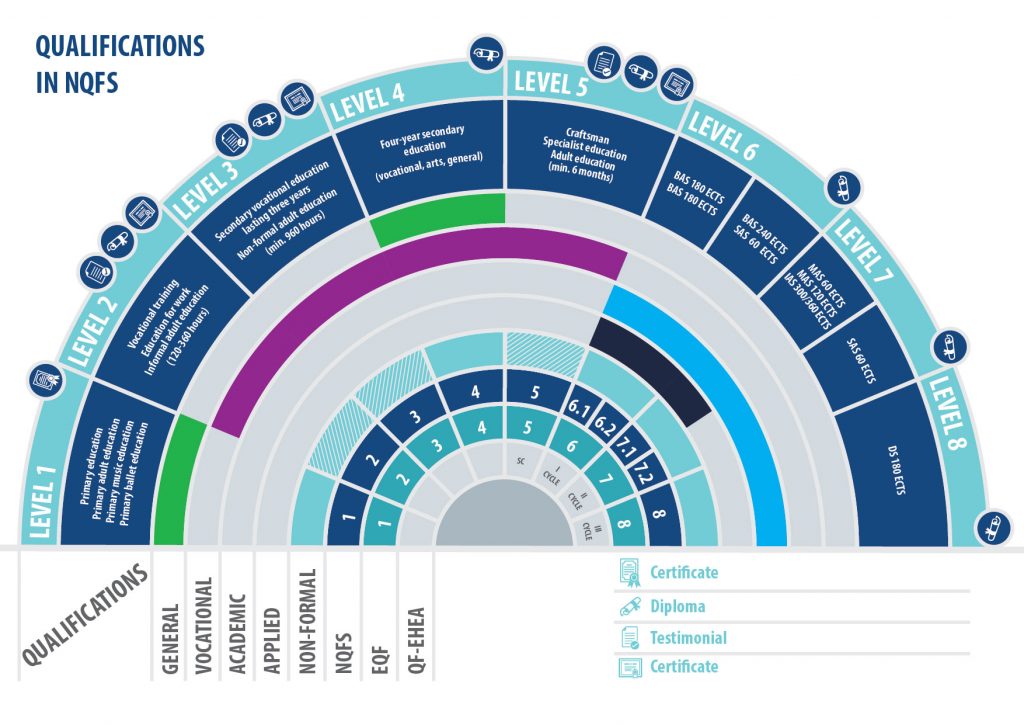Referencing NQFS with ЕQF
As part of the process of joining the European Union and as one of the goals in the national strategic documents, at the 52nd meeting of the EQF Advisory Group held on 4th and 5th February 2020 in Brussels, the Report on Referencing National Qualifications Framework of the Republic of Serbia (NQFS) to the European Qualifications Framework (EQF), including an additional report on the self-certification of NQFS in the field of higher education to the Qualifications Framework of the European Higher Education Area (QF-EHEA), was adopted during September 2020. The report was published on the website of the European Commission. The report has been prepared in accordance with the criteria and procedures set by the EQF Advisory Group, and is the result of numerous expert-consultative meetings with the national and EU partners.
With the adoption of the Report on Referencing NQFS to the EQF, the qualifications framework of the Republic of Serbia is linked to the European Qualifications Framework, which means that a clear and transparent link is established between the eight qualification levels of the Republic of Serbia and the eight qualification levels of the European Qualifications Framework.
By referencing the NQFS to the EQF, employers have been able to better assess the qualifications of workers coming from other countries and institutions unknown to them. Also, employers can better assess whether the learning outcomes meet the needs of the company in which the worker wants to be employed. In this way, labor mobility is enabled and the supply and demand of labor in the labor market is improved.
Referencing the NQFS to the EQF ensures trust between the national qualifications systems of different European countries, that is, better information on the possibilities of continuing education and “movements” through the education system in different countries.
Since the EQF is based on learning outcomes, it is possible to take into account the experiences that an individual acquires outside the formal education system, which supports lifelong learning.
The European Qualifications Framework supports the evaluation of non-formal education and informal learning, which is a prerequisite for lifelong learning.
The European Qualifications Framework also supports other EU transparency tools, such as Europass, the European Credit Transfer and Accumulation System (ECTS) and the European Credit system for Vocational Education and Training (ECVET).
You can download the Report on Referencing National Qualifications Framework of the Republic of Serbia to the European Qualifications Framework at this link.

Download document: COUNCIL RECOMMENDATION
Download document: EQF Interactive_Brochure_EN
Download document: Referencing EQF with NQF.pdf
Download document: Learning outcomes.pdf
Download document: State of play Referencing Report Serbia
Download document: Serbia Referencing Report_0
